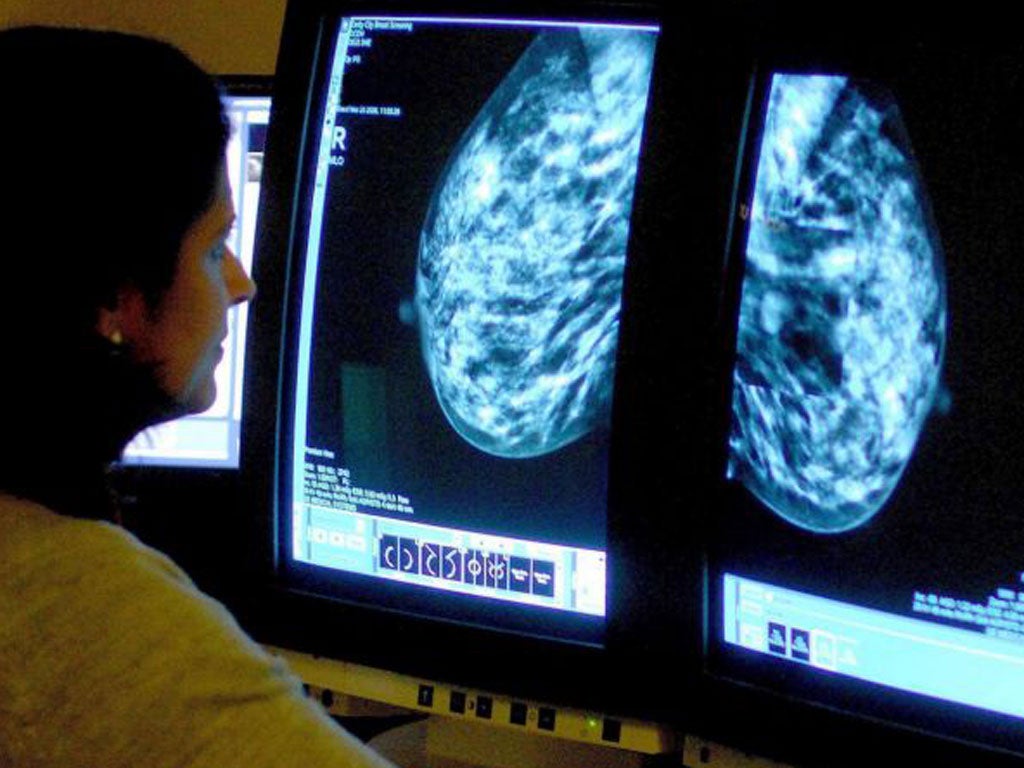More than 180,000 women could die from breast cancer by 2030 unless gaps are filled in research, says charity
Major review calls for greater investment to help ‘overcome’ disease in 40 years

Your support helps us to tell the story
From reproductive rights to climate change to Big Tech, The Independent is on the ground when the story is developing. Whether it's investigating the financials of Elon Musk's pro-Trump PAC or producing our latest documentary, 'The A Word', which shines a light on the American women fighting for reproductive rights, we know how important it is to parse out the facts from the messaging.
At such a critical moment in US history, we need reporters on the ground. Your donation allows us to keep sending journalists to speak to both sides of the story.
The Independent is trusted by Americans across the entire political spectrum. And unlike many other quality news outlets, we choose not to lock Americans out of our reporting and analysis with paywalls. We believe quality journalism should be available to everyone, paid for by those who can afford it.
Your support makes all the difference.More than 180,000 women could die from breast cancer by 2030 unless action is taken over critical gaps in research, a major new report has warned.
In what the charity Breast Cancer Campaign called the most comprehensive review of research on the subject ever carried out, the authors identified 10 areas where more action was needed – but held out the prospect that breast cancer could be “overcome” within 40 years if its recommendations were followed.
The report, which brought together 100 internationally recognised scientists, clinicians and healthcare professionals, said better understanding and investment was needed in 10 key areas – among them the genetic factors that lead to breast cancer and risk factors that should be considered for targeted breast screening. Future research funding will have to be increased, and there will need to be greater collaboration between different scientific fields – including computer technology, physics and engineering – to help clinicians, the paper said.
“If we don’t act now, by 2030 more than 1.2 million women could be living with or after a breast cancer diagnosis and 185,000 lives could have been lost to breast cancer,” said Baroness Delyth Morgan, of Breast Cancer Campaign, which commissioned the research. “We want future mothers, daughters and wives to have their breast cancer prevented, cured or for them to outlive the disease, and hope that together we can achieve this by 2050.”
The charity aims to raise £100m over the next decade to specifically tackle gaps in research. Experts are keen to collect tissue samples to understand more about what happens when cancer begins to spread. By 2030, the report’s authors said, researchers should aim to have identified what causes different tumours to grow and progress, enabling doctors to pick the best treatments for each individual patient.
Professor Sue Eccles, from The Institute of Cancer Research and a co-author of the report, said understanding of breast cancer had advanced “enormously” in the past five years, but that scientific breakthroughs had brought new challenges for researchers. “We now know that breast cancer cells can have different characteristics, even with the same tumour, and these can also change over time,” she said. “This makes it much more complex to research and is why we need greater collaboration between multi-disciplinary teams and an improved infrastructure, to ensure we are getting the data and tissue samples needed to advance our research our research knowledge.”
Join our commenting forum
Join thought-provoking conversations, follow other Independent readers and see their replies
Comments